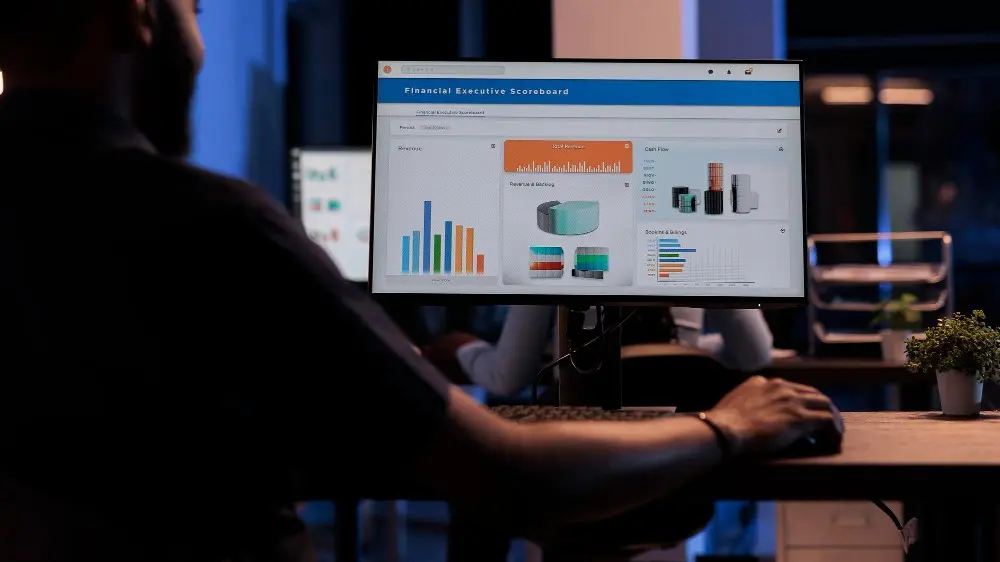In the digital realm of search engine optimization (SEO), mastering on-page and off-page ranking factors is paramount for enhancing visibility and driving organic traffic to your website. These factors encompass a range of techniques and strategies aimed at optimizing various aspects of your website to improve its search engine rankings. From content optimization and HTML heading tags to backlinks and social signals, understanding and implementing these factors effectively can significantly impact your website’s performance in search results.
I. On-Page Ranking Factors

A. Content Optimization
Optimizing content stands as a pivotal element within on-page SEO strategies. By optimizing your content, you can improve its visibility and relevance to search engines. Consider these essential factors:
- Quality Content: Creating high-quality, valuable content is essential for on-page optimization. Focus on providing informative and engaging content that meets the needs of your target audience.
- Keyword Optimization: Incorporating relevant keywords throughout your content helps search engines understand the topic and context of your page. Use keywords naturally and strategically in the title, headings, body, and meta tags.
- Content Length: While there is no fixed rule for content length, longer articles tend to perform better in search engine rankings. Aim for comprehensive and detailed content that covers the topic in-depth.
- Latent Semantic Indexing Keywords (LSI): LSI keywords are terms related to your main keyword. Incorporating Latent Semantic Indexing (LSI) keywords into your content aids search engines in grasping the context and relevance of your page, thereby enhancing the overall user experience.
- Page Covers Topic In-Depth: To rank higher in search results, ensure that your content covers the topic in-depth. Provide comprehensive information, answer common questions, and address related subtopics to establish your page as a valuable resource.
B. HTML Heading Tags
Heading tags (H1-H6) play a significant role in on-page SEO. They provide structure and hierarchy to your content, making it easier for search engines and users to understand. Here’s what you need to know:
- Importance of Heading Tags: Heading tags help organize your content and provide visual cues to readers. They also signal to search engines the importance and relevance of different sections on your page.
- H1 Tag as a Ranking Factor: The H1 tag is the most important heading tag and should be used to indicate the main topic of your page. Including relevant keywords in the H1 tag can positively impact your search engine rankings.
- H2-H6 Tags as Ranking Factors: While not as influential as the H1 tag, using H2-H6 tags to structure your content helps search engines understand the hierarchy and relevance of different sections. Moreover, it enhances readability and contributes to an improved user experience.
- Using Keywords in Heading Tags: Incorporating keywords in your heading tags can further optimize your content. However, it’s important to use them naturally and ensure that the headings accurately reflect the content of the section.
C. URL Structure
The arrangement of your URLs can influence your on-page SEO. A clean and descriptive URL helps search engines and users understand the content of your page. Consider the following:
- Importance of Clean and Descriptive URLs: Clean URLs that are free from unnecessary characters, numbers, and symbols are easier to read and understand. Descriptive URLs provide valuable information about the page’s content.
- Including Keywords in URLs: Incorporating relevant keywords in your URLs can improve their visibility in search engine results. However, avoid keyword stuffing and ensure that the URL remains concise and user-friendly.
II. Off-Page Ranking Factors

A. Backlinks
Backlinks are an essential off-page ranking factor that plays a significant role in determining the authority and credibility of a website. Here are some key points regarding the importance, quality, relevance, and natural link building strategies for backlinks:
Importance of Backlinks:
- Backlinks serve as validations from other websites, signaling that your content is valuable and trustworthy.
- They contribute to higher search engine rankings, as search engines consider backlinks as a signal of a website’s authority and relevance.
Quality and Relevance of Backlinks:
- Quality backlinks from authoritative and relevant websites carry more weight in boosting your website’s rankings.
- It is crucial to focus on acquiring backlinks from reputable sources within your industry or niche to ensure relevance and credibility.
Natural Link Building Strategies:
- Engaging in natural link building practices is essential to avoid penalties from search engines.
- Natural link building entails producing high-quality content that naturally draws backlinks from other websites.
- Building relationships with influencers, guest posting on relevant blogs, and participating in industry forums can also help in acquiring natural backlinks.
B. Social Signals
Social signals refer to the engagement and interactions that your website’s content receives on social media platforms. Here are some key points regarding the impact of social signals on rankings and encouraging social interaction:
Impact of Social Signals on Rankings:
- While the direct impact of social signals on search rankings is still debated, there is evidence to suggest that social signals can indirectly influence rankings.
- Social signals can increase brand visibility, drive traffic to your website, and potentially attract natural backlinks, which can positively impact your rankings.
Encouraging Social Interaction:
- To maximize the impact of social signals, it is essential to create shareable content that resonates with your target audience.
- Encourage social sharing by incorporating social sharing buttons on your website, creating engaging and informative posts, and actively engaging with your audience on social media platforms.
C. Brand Signals
Building a strong brand online is crucial for establishing trust and credibility. Here are some key points regarding building a strong brand online and the importance of brand reputation and trust:
Building a Strong Brand Online:
- Consistently delivering high-quality products or services, providing exceptional customer experiences, and maintaining a strong online presence are essential for building a strong brand.
- Utilize various branding strategies, such as creating a unique brand identity, establishing brand guidelines, and consistently communicating your brand values and messaging across all platforms.
Brand Reputation and Trust:
- A positive brand reputation and trust are vital for attracting and retaining customers.
- Monitor and manage your online reputation by actively engaging with customers, addressing their concerns, and promptly resolving any issues that may arise.
- Encourage satisfied customers to leave positive reviews and testimonials, as they can significantly impact your brand’s reputation and trustworthiness.
III. Technical SEO Factors

A. Website Architecture
Website architecture encompasses the arrangement and organization of a website’s components. It plays a crucial role in technical SEO as it affects how search engines crawl and understand your website. Here are some important aspects of website architecture:
- Importance of a Well-Structured Website: A well-structured website makes it easier for search engines to navigate and index your content. It helps in improving the overall user experience and ensures that your website is easily accessible to both users and search engines.
- User-Friendly Navigation: A clear and intuitive navigation menu helps users find the information they are looking for quickly. It also helps search engines understand the hierarchy and relationship between different pages on your website.
- XML Sitemap: An XML sitemap is a file that lists all the important pages on your website. It facilitates search engines in discovering and indexing your content with greater efficiency. Submitting your XML sitemap to search engines like Google can improve the crawlability and indexability of your website.
B. Mobile-Friendliness
With the increasing use of mobile devices, mobile-friendliness has become a crucial factor in technical SEO. Here are some key considerations:
- Mobile-First Indexing: Google now primarily uses the mobile version of a website for indexing and ranking. This means that having a mobile-friendly website is essential for better visibility in search results.
- Responsive Design: A responsive design ensures that your website adapts to different screen sizes and devices. It provides a seamless user experience across desktops, tablets, and smartphones, improving user engagement and search engine rankings.
C. Website Speed
Website speed is critical not just for user experience but also for search engine rankings. Here’s why:
- Impact of Website Speed on Rankings: Search engines consider website speed as a ranking factor. A slow-loading website can have a detrimental effect on user experience, often resulting in higher bounce rates. Optimizing your website speed can improve your search engine rankings.
- Optimizing Website Speed: There are several ways to improve website speed, such as optimizing images, minifying CSS and JavaScript files, using caching techniques, and leveraging content delivery networks (CDNs). These optimizations can significantly enhance your website’s performance.
D. Crawlability and Indexability
Ensuring that search engines can easily crawl and index your website is crucial for visibility in search results. Here are several key factors to consider:
- Importance of Easy Crawling and Indexing: If search engines cannot crawl and index your webpages, they won’t appear in search results. It is essential to have a website structure and technical setup that allows search engines to discover and understand your content.
- Robots.txt and XML Sitemap: The robots.txt file helps you control which pages search engines can crawl and index. An XML sitemap lists all the important pages on your website, making it easier for search engines to discover and index them. Properly configuring robots.txt and submitting an XML sitemap can improve crawlability and indexability.
Conclusion
Mastering the intricate world of on-page and off-page ranking factors is essential for navigating the competitive landscape of SEO successfully. By optimizing your content, leveraging HTML heading tags, acquiring quality backlinks, and harnessing the power of social signals, you can enhance your website’s visibility, credibility, and authority in the eyes of search engines. Additionally, prioritizing technical SEO factors such as website architecture, mobile-friendliness, website speed, and crawlability can further solidify your position in search results. By incorporating these strategies into your SEO efforts, you can position your website for long-term success and sustainable growth in the ever-evolving digital landscape.




